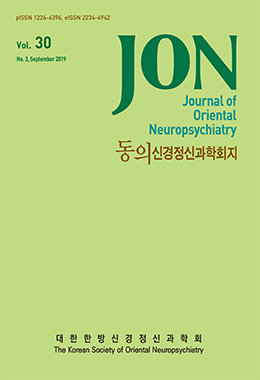Objectives: The purpose of this study was to identify the effectiveness of Korean medicine treatment in mild cognitive impairment (MCI) among a group of community dwelling elderly.
Methods: Two-hundred and twenty-nine elderly living in a community and diagnosed with MCI were recruited. Participants were evaluated with various instruments such as the Korean version of Mini- Mental State Examination for Dementia Screening (MMSE-DS) and the Korean version of Montreal Cognitive Assessment (MoCA-K). Korean medicine treatment consisted of herbal medicine, acupuncture, and pharmacoacupuncture. The change in cognitive ability was assessed by using the MMSE-DS and the MoCA-K. Data were analyzed by SPSS/WIN 22.0 using the paired t-test, and the ANOVA.
Results: The MMSE-DS and the MoCA-K score generally increased after six months of Korean medicine treatment and the differences in both instruments were statistically significant. Additionally, some consecutive participants maintained long-term cognitive improvement. When analyzed specifically by herbal medicine group based on syndrome differentiation and pharmacoacupuncture group, most showed improvement in the MMSE-DS and the MoCA-K but not all data were statistically significant. The satisfaction score was mostly high and most participants were willing to re-participate in the program.
Conclusions: Korean medicine treatment may contribute to the improvement and prevention of cognitive decline in the elderly. However, further systematic research based on large scale sample data and standardized protocols is needed to uplift the welfare and mental health of the elderly.




